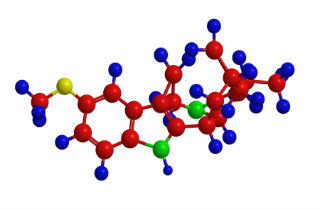By Aeden Smith-Ahearn
Although Ibogaine may not be right for everyone, can this psychotropic substance help people in addiction recovery? Guest writer, Aeden Smith-Ahearn, explores here.
Continue reading this article to learn more about Ibogaine and it’s usefulness in the treatment of heroin addiction. At the end, we welcome you to send your questions, and we’ll provide a personal response as soon as possible.
The origins of Ibogaine for heroin addiction
In the 1960’s a young heroin addict named Howard Lotsof had an interest in psychoactive drugs. A chemist he knew gave him something called Ibogaine—a synthesized drug extracted from a plant called “Tabernanthe Iboga”. It took him about 72 hours to realize something: After taking Ibogaine he had no cravings for heroin anymore.
He decided to look deeper into it. He tested it on some friends. They had the same reaction he had. After the drug wore off they realized they had no cravings for their heroin addictions. This was a serious claim, and Howard Lotsof spent the rest of his life studying Ibogaine and investigating deeper into the medicinal properties of it.
Ibogaine: A viable addiction treatment option?
Ibogaine treatment for heroin and opiate addiction is still considered underground today. Few people know about it. Many heroin addicts will tell you the first time they heard about Ibogaine it seemed like pie in the sky. Many who have taken Ibogaine for their addictions have the same story, they went to a clinic outside of the USA, they hoped it would work, and the impact on their lives was even greater than they thought. But the question here isn’t whether Ibogaine should be accepted as the only treatment for addiction, the question is whether it should be viewed as a viable treatment for addiction.
A Brief History of Ibogaine
Ibogaine was first used in France in the 1930’s as a mental and physical stimulant. Then, it found its way into the hands of Olympic athletes as a performance enhancer. By the 1960’s Ibogaine was classified as a Schedule 1 drug in the USA and the Olympic committee banned Ibogaine use.
This means that Ibogaine was made illegal just a few years after Howard Lotsof had discovered its effects on opiate addiction. Since then, Ibogaine has gone through several studies outside the USA with very little testing being done in the USA. Currently, many addicts seek Ibogaine treatment for heroin addiction in countries like Mexico or Canada—where it is not illegal.
So, if Ibogaine really has the ability to alleviate addiction, why hasn’t there been a bigger push for USA based studies?
The Opiate Epidemic
There are currently around 80 deaths per day on average due to opiate and heroin overdose and this number is growing. The number of addicts in this country is downright scary.
There are really two problems here:
- How do you stop the increasing number of users from becoming addicts?
- How do you treat those who are addicted?
The first problem Ibogaine can’t really help with. However, Ibogaine can work to treat those who are already addicted, especially those that have gone through traditional methods of treatment with little or no success.
How Ibogaine Treatment Works
Ibogaine is a psychedelic drug. Often users describe their experience with Ibogaine as being in a dream like state. Ibogaine not only treats the physical addictions that many addicts struggle to overcome, but it also treats addiction on other levels, helping many addicts find deeper reasons for their addiction.
But, how does Ibogaine work on a physical level? Ibogaine bonds with opioid receptors to reset the brain. This interrupts the addiction and puts the brain back to a pre-addicted state.For the addict, in essence, it significantly reduces, or in most cases eliminates, withdrawals from the addiction.As in Howard Lotsof’s case, the addict has a realization hours later that they no longer have the cravings for opiates that they had before.
And this doesn’t only work with opiates; alcoholics, methamphetamine addicts, crack and cocaine users all have seen significant success through Ibogaine treatment.
Safety and Ibogaine
However, just like any drug treatment, Ibogaine treatment must be monitored by a medical specialist. Pre-screening and medical supervision during treatment are a necessity for successful treatment. Like any treatment, Ibogaine is not perfect. It is a great choice for some and not for others. Talking to a specialist about your options will ensure you make the best decision for you or your loved one.
Knowledge is power. Having an understanding of all the options available to you will give you the power you need to make the right decision. As always, Ibogaine treatment must be coupled with a willingness to change. No drug treatment will work unless the addict is willing to change their lives. However, with a true desire to change any addict can find their path to a successful drug free life.
Ibogane addiction treatment questions
We welcome your questions!
If you would like to learn more about Ibogane treatment, and whether it is an appropriate option for you, feel free to consult your doctor or treatment provider. We are also here to answer all your questions. Please post them in the designated section at the end of the page, and we’ll try to respond personally and promptly.









Related Posts